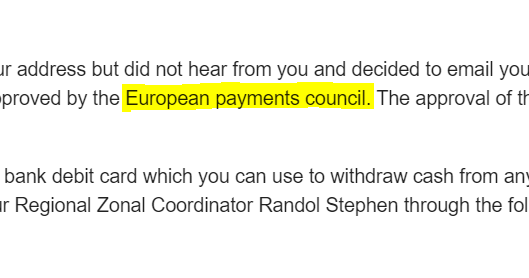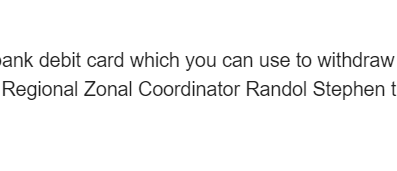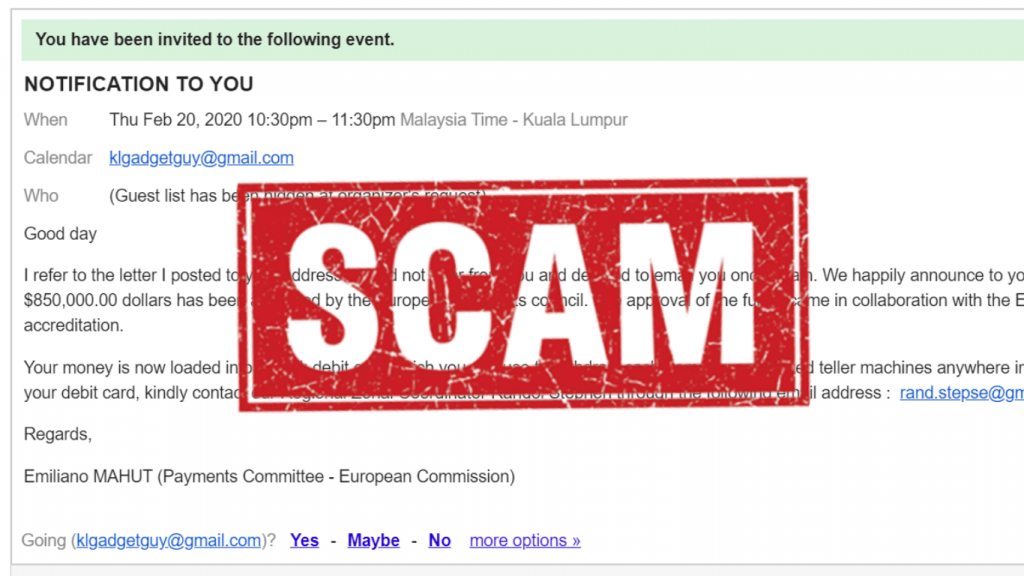On the very rare occasion, we get scam e-mails like this – and it’s been some time since we’ve seen one and we find it amusing. So we’re sharing with you how a scam e-mail looks like and to tell you to ABSOLUTELY NOT CLICK ON ANY LINKS from the mail.
This person, by the name of Emiliano Mahut e-mailed us yesterday, graciously notifying us that we’re benefactors to USD850,000 due to be issued by the European Payments Council (EPC). It says that we’ve won an award and that’s the prize – WHAT AWARD EMILIANO?! Plus, why is the e-mail sent as a calendar event? Is this a party Emiliano – do we bring our own booze?

Also, you’d think being an employee of the European Payments Council, Emiliano would have an e-mail address with his company’s domain – but nah, apparently these guys use Gmail.

Also being an employee of the European Payments Council, you’d think Emiliano here would know how to spell the name of the organization he’s working for – notice he’s grossly failed to title case the words “payment” and “council” – for shame Emiliano.
He then proceeds to not address us with a proper name, but instead just greet us with a neighbourly “Good Day” – well, good day to you my dude! He mentions that the council had sent a physical e-mail, which we did not receive; this is just an attempt at appearing formal – like a government body SOP of sending physical letters.
Emiliano then says that the money is loaded onto a debit card for us to collect and withdraw from – how convenient! We’re not sure how massive sums of cash get transferred to people, but we’re sure it’s not via a debit card.

And then of course to collect our moolah, we’ll have to contact another person who also happens to use a Gmail domain. He’s the Regional Zonal Coordinator – regional and zonal are redundant, they mean the same thing.
Emiliano then signs off with his designation as being from the Payments Committee of the European Commission – where are you from Emiliano – the European Payments Commission or the European Commission? Although they do work closely with each other, they’re both separate entities. Why would someone from the EC send an email on behalf of the EPC?
By now, I hope you, the person reading this, sees the signs of a scam mail – and we urge you to not fall for anyone saying they have money to give you. Visit the Malaysian Communications and Multimedia Commissions website to learn more about online phishing.


1 comment